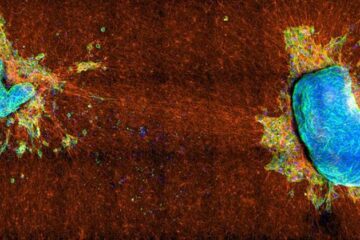Bradford Scientists developing lifesaving vaccine for newborns

Microbiologists from the University of Bradford believe they may be closer to developing a vaccine that can protect newborn babies from being infected by the common and potentially fatal bacteria Group B Streptococcus.
Group B Streptococcus (GBS) are the most common bacteria attacking newborn babies, affecting 1 in 1000 births, and killing up to 6 per cent of those infected. It infects around 700 babies in the UK each year and kills around 100 of those infected, according to the national charity Group B Strep Support (GBSS).
GBS can cause pneumonia, blood infections and meningitis, and seriously ill babies can die within 24 hours of birth. Babies catch the bacteria from colonised mothers around the time of delivery. Pregnant women may be unaware that they are carrying GBS as usually there are no symptoms.
Beverley Bray (25), a PhD student from the Department of Biomedical Sciences at the University of Bradford, is focussing her studies on this vaccine under the supervision of research leader Dr Dean Harrington.
Research by Mrs Bray and Dr Harrington has focused on structures on the bacterium’s surface – lipoproteins – which they think may be important in several processes, including attaching GBS to the baby’s own cells.
Mrs Bray said: “At the moment, we don’t know why GBS is so virulent, so we need to understand how it sticks itself to a baby’s cell surfaces to give us a chance of creating a vaccine.
“If, ultimately, we can develop an effective vaccine from lipoproteins, we could prevent colonised mothers from transmitting the bacteria to newborns. This will remove the need to treat large numbers of mothers and babies with antibiotics.”
In their studies, the University’s microbiologists have looked at a closely related species of Streptococcus that attacks horses, and created a strain that does not produce lipoproteins. They showed that this changes the bacterium’s ability to cause disease, making lipoproteins a possible route for creating a vaccine.
Jane Plumb, Chairman and Co-founder of the charity Group B Strep Support, said: “Up to a third of all men and women carry GBS in their intestines without symptoms and roughly a quarter of women of childbearing age carry GBS in the vagina at any one time.
“A safe and reliable vaccine against GBS infection in babies would be brilliant. It could protect more babies from these infections than any methods we currently have. It could also overcome some of the main problems with screening women for GBS carriage and treating them in labour.
“Some mums will always miss out on screening, and others will have such fast labours they won’t get adequate treatment before delivery. A vaccine could mean many mothers and their babies wouldn’t need antibiotics, which has got to be good news.”
Mrs Bray presented interim results of her research at a recent meeting of the Society of General Microbiologists at Keele University in Staffordshire. Initial findings of the research are expected to be published in 2006.
Media Contact
More Information:
http://www.bradford.ac.ukAll latest news from the category: Health and Medicine
This subject area encompasses research and studies in the field of human medicine.
Among the wide-ranging list of topics covered here are anesthesiology, anatomy, surgery, human genetics, hygiene and environmental medicine, internal medicine, neurology, pharmacology, physiology, urology and dental medicine.
Newest articles

Columbia researchers “unzip” 2D materials with lasers
The new technique can modify the nanostructure of bulk and 2D crystals without a cleanroom or expensive etching equipment. In a new paper published on May 1 in the journal…

Decoding development: mRNA’s role in embryo formation
A new study at Hebrew University reveals insights into mRNA regulation during embryonic development. The study combines single-cell RNA-Seq and metabolic labeling in zebrafish embryos, distinguishing between newly-transcribed and pre-existing…

Study sheds light on cancer cell ‘tug-of-war’
How cancer cells tug against each other determines whether they can migrate elsewhere in the body. Understanding how cancerous cells spread from a primary tumor is important for any number…





















